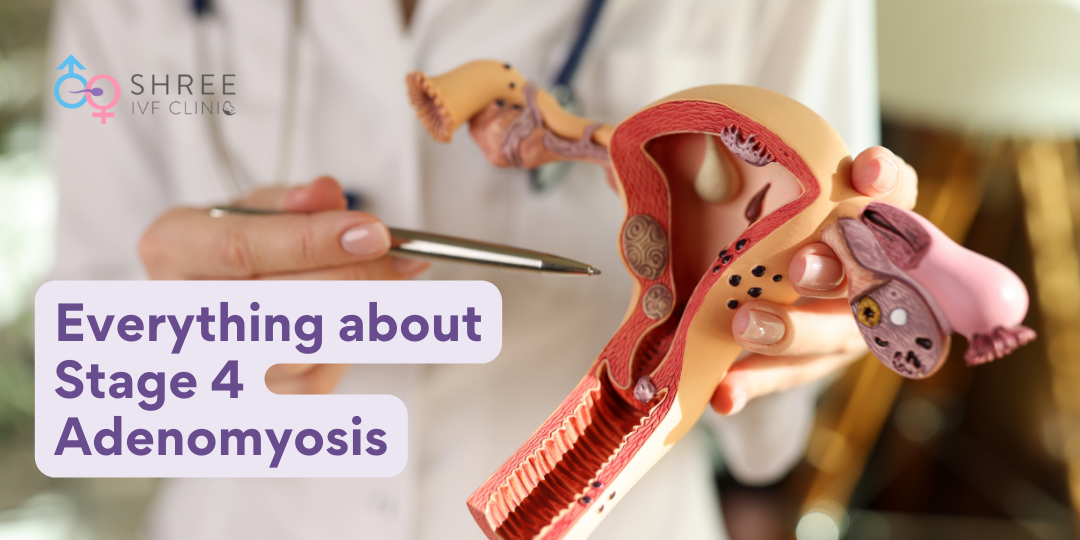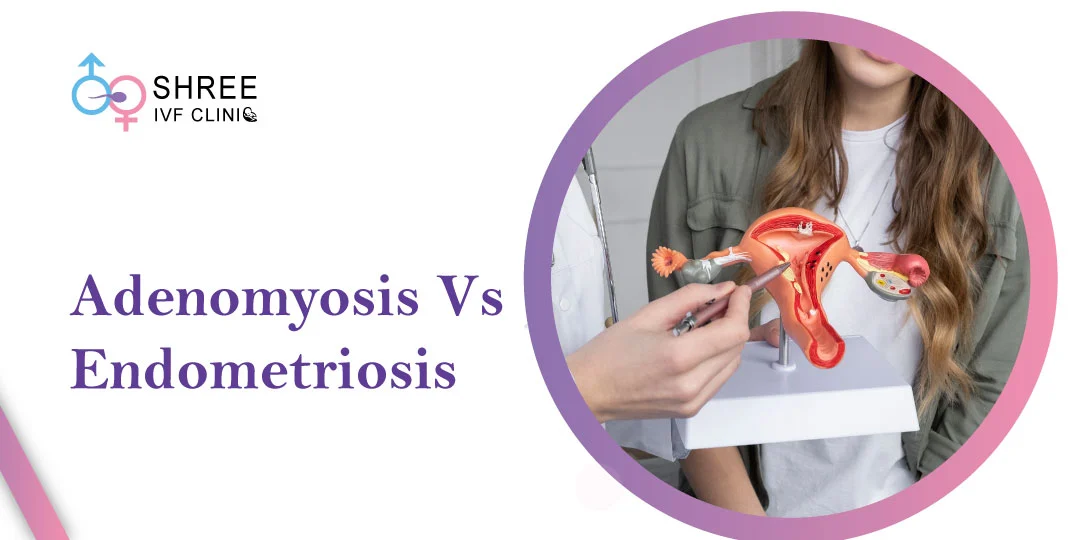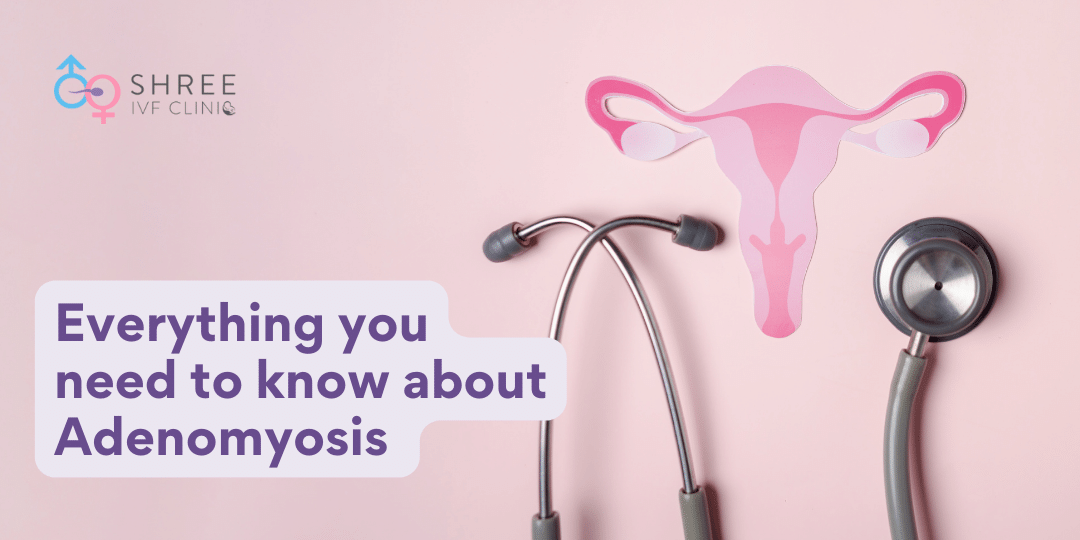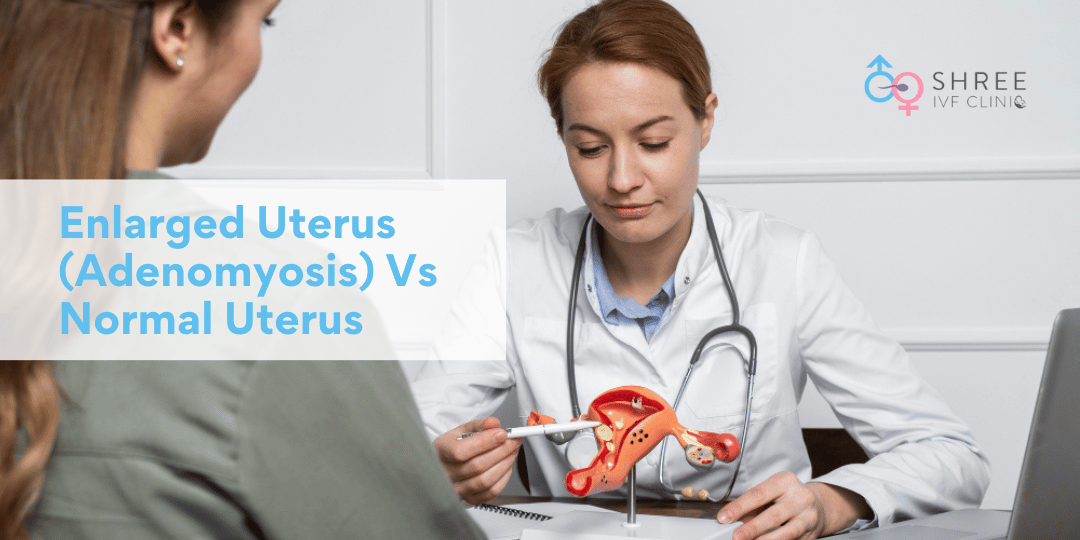Stage 4 adenomyosis: Signs & Symptoms, Diagnosis, Treatment & Coping Up
UPDATED ON 6 DEC. 2023
Adenomyosis, a gynecological condition that occurs when the cells lining the uterus (endometrial cells) grow into the uterine wall, is a subject of growing concern among women in India. It can cause severe discomfort and potentially lead to complications such as heavy bleeding and infertility.
While this condition can occur at any stage, it’s particularly crucial to understand Stage 4 adenomyosis, the most advanced stage. Let’s understand the symptoms, diagnosis, complications, and treatment options for Stage 4 adenomyosis, making it easier for you to navigate this health challenge.

AUTHOR
Dr Jay Mehta
Scientific Director & IVF Specialist with 10+ years of experience
CONDITION
GET IN TOUCH ON
Stage 4 Adenomyosis: An In-Depth Look
The staging system for adenomyosis denotes the severity of the condition, with Stage 4 being the most severe. Unlike the earlier stages where the endometrial cells infiltrate only parts of the uterine muscle, in Stage 4, these cells are found throughout the uterus, causing considerable discomfort and health issues. This stage is characterized by the complete infiltration of the endometrial tissue into the myometrium (uterine muscle), leading to a thickened and enlarged uterus.
Symptoms & Signs of Stage 4 Adenomyosis
If you experience any of these signs, consult a gynaecologist immediately or contact us at Shree IVF Clinic. We will definitely help you out.
Diagnostic Challenges
Diagnosing adenomyosis, particularly Stage 4, can be challenging due to the similarity of its symptoms with other conditions like uterine fibroids and endometriosis. Gynecologists usually rely on a combination of physical examination, patient history, ultrasound or MRI scans to detect abnormalities in the uterus. However, a definitive diagnosis often requires a biopsy, which is invasive. It’s essential to consult an experienced gynaecologist who can accurately diagnose this condition.
Complications and Impact
Stage 4 adenomyosis can lead to complications like anaemia due to heavy menstrual bleeding, and it can impact fertility. Moreover, dealing with chronic pain can take a toll on mental health, highlighting the need for holistic treatment approaches. Women with Stage 4 adenomyosis may also experience miscarriages, preterm labour, and difficulties in getting pregnant.
What are treatments for stage 4 adenomyosis?
Treatment for Stage 4 adenomyosis varies from conservative management strategies such as hormonal therapies (birth control pills, progestin therapy), non-hormonal therapies (non-steroidal anti-inflammatory drugs), to surgical interventions such as hysterectomy. In recent years, advanced treatments like uterine artery embolization and endometrial ablation have shown promising results, offering hope for better management of this condition.
It’s also important to remember that while these treatments can help manage symptoms, they are not cures. Adenomyosis is a chronic condition that requires ongoing management. However, with the right treatment plan, women with Adenomyosis can lead healthy, fulfilling lives.
Holistic Approaches and Lifestyle Changes
Along with medical treatments, lifestyle changes can help manage symptoms. A balanced diet rich in fruits, vegetables, lean proteins and whole grains, regular exercise, and stress management techniques such as yoga and meditation can make a significant difference. At Shree IVF Clinic, we believe in a multidisciplinary approach, integrating medical treatment with lifestyle modifications to improve patients’ overall well-being.
Coping Strategies and Support
Living with Stage 4 adenomyosis can be challenging, but remember, you’re not alone. Joining support groups, seeking mental health counseling, and developing effective coping strategies can help you navigate this journey. Support groups provide a safe space to share experiences, gain insights from others going through similar situations, and garner emotional support.

4,790+
379K+
” Every individual and couple’s journey is unique, and
finding the right solutions tailored to their specific
circumstances can make all the difference “
Future Directions in Adenomyosis Research
Research into adenomyosis is ongoing, with scientists around the world working towards better treatments and potential cures. Advances in medical technology and understanding of the disease are paving the way for improved diagnostic techniques and more effective treatments. In India, clinics like Shree IVF are at the forefront of these efforts, bringing hope for those battling this condition.
In Conclusion, Understanding Stage 4 adenomyosis is the first step towards managing it effectively. Don’t hesitate to seek help from experienced gynaecologists, and remember, with the right treatment and support, you can lead a healthy, fulfilling life. Let’s raise awareness about adenomyosis and strive for a healthier future for all Indian women.
AUTHOR
Dr Jay Mehta
Scientific Director & IVF Specialist with 10+ years of experience
CONDITION
CALL US 24/7 FOR ANY HELP
GET IN TOUCH ON
Share Article on
Recommended Reading
Difference Between Adenomyosis and Endometriosis
Endometriosis causes tissue to grow outside the uterus, while adenomyosis leads to growth within the uterine muscle
What Causes Adenomyosis? Guide to Causes, Diagnosis & Treatments Available
Demystifing Adenomyosis, providing an in-depth overview of its causes, diagnosis, and treatment options through this article. learn more.
Understanding Enlarged Uterus vs Normal Uterus
This article helps you understand the difference between an enlarged uterus vs normal normal-sized along with its signs & symptoms




